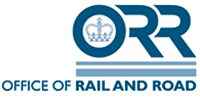
The Office of Rail and Road (ORR) has issued new guidance on complaints handling procedures (CHPs) for the rail industry.
The guidance is aimed at ensuring that train and station operators use the insight from passenger complaints to tackle root causes of dissatisfaction and continuously improve the passenger experience.
The new CHP guidance updates previous guidance from 2005, and focuses on the way the industry manages staff and culture in responding effectively to complaints.
ORR has developed the new complaints handling guidance after close consultation with the rail industry, incorporating views from across the sector. The main updates to the guidance include:
- Having a clear process in place to distinguish between complaints and feedback, particularly in use of social media platforms such as Twitter.
- A requirement for train or station operators to coordinate responses to complaints about third parties (such as car park providers or catering staff) – this will ensure that the passenger is not disadvantaged by, for example, having to address a complaint to several different bodies.
- A new obligation to establish an appeals handling process with the passenger bodies (Transport Focus and London Travel Watch), where the passenger bodies think this would be appropriate.
- How ORR is also working with the industry on monitoring compliance with the guidance, including publication of key performance data demonstrating how train operating companies are complying with their obligations to disabled passengers and managing passenger dissatisfaction.
Stephanie Tobyn, Deputy director – consumers, said:
We want to see the industry use complaints information, as well as general passenger feedback, to identify the root causes of dissatisfaction and take targeted action to improve the overall customer experience. The new guidance is aimed at making sure that the industry focuses on putting the right training, staff and organisational structures in place to deliver a continuously improving railway for passengers. We have updated the guidance to reflect technological developments such as use of social media to ensure that the industry is keeping pace with the changing needs and expectations of passengers.
Rail Minister Claire Perry said:
Our plan for passengers is to build a world-class rail network, backed by record levels of investment that provides the highest standards of customer service and makes journeys better for everyone. This new guidance will make it easier for customers to raise a complaint when they don't receive the quality service that they deserve, and will help to ensure that passengers are at the heart of everything the rail industry does.
In recent years, the regulator has worked closely with governments and the rail industry to improve overall standards of service for rail passengers. This includes overseeing the development of an industry 'code of practice' on providing accessible and accurate ticket information to passengers when they buy rail tickets; ensuring timely and reliable passenger information during disruptions, through an industry action plan; and driving industry transparency through publication of vital data on complaints, passenger journeys and train punctuality.
Additionally, ORR is also reviewing the rail ticket market to determine whether the industry arrangements as well as rules and regulations on ticket selling – which are over 20 years old – are still relevant and providing the best outcome for passengers.
The regulator will publish a new report from April 2016 showing industry performance against key obligations it has towards the consumers. This will cover assistance to disabled passengers, management of complaints handling processes, provision of information to passengers particularly during travel disruption and better information to help passengers choose the best ticket for their needs.
About the Office of Rail and Road (ORR)
The Office of Rail and Road is the independent safety and economic regulator for Britain's railways and monitor of Highways England.
We are here to ensure the network operates safely, reliably and provides value for taxpayers and customers. We safeguard the public and the workforce by regulating the rail industry's health and safety performance. We hold Network Rail to account – and we require it to provide passengers with a punctual, reliable service. We make sure that train and freight operating companies have fair access to the rail network, and that the market is competitive and fair.




Comments
There are no comments yet for this item
Join the discussion